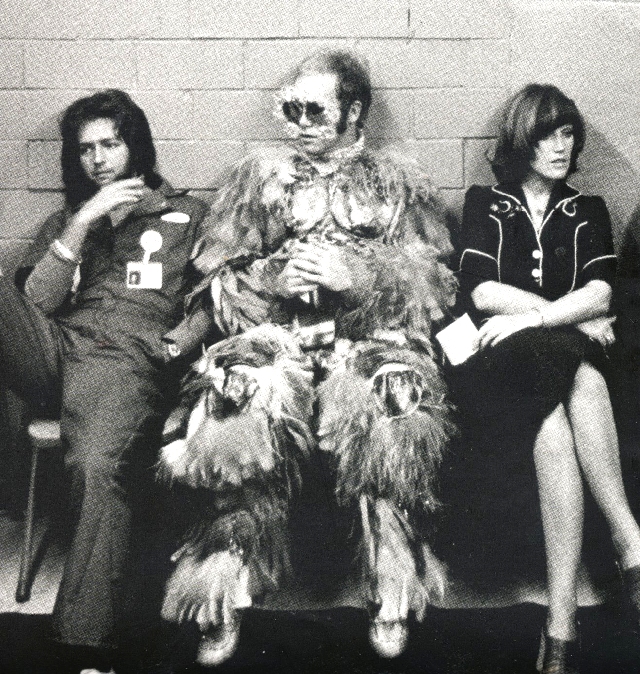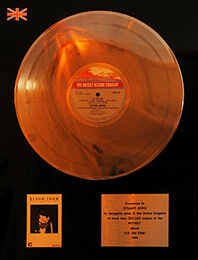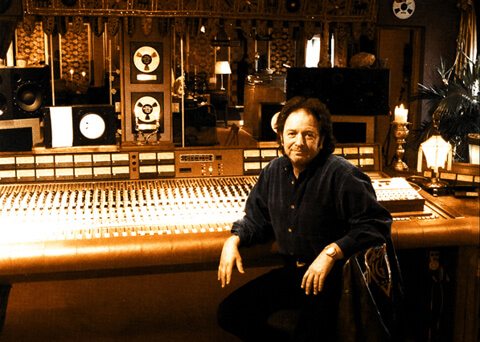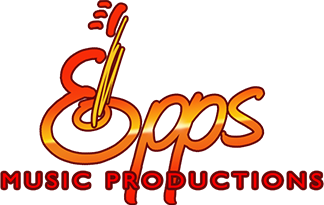
Stuart Epps has toured America with Elton John, produced and engineered records for Led Zeppelin, Elton John, Bill Wyman and Paul Rodgers and is now focusing on the Next Generation of up-and-coming artists:
With decades of experienced garnered from working with the very best musicians at the top of the industry, coupled with a real love for music, Stuart has an intuitive knack for knowing just what will make each track sound most authentic. With a deep understanding too, of musicians and their needs, Stuart has a clearheaded, dedicated approach to getting the job done.
After what Epps describes as ‘a mad beginning in life’ and developing a passion for singing at just three years old, then listening intently with his father at the age of six to the first broadcast of ‘A Journey Into Stereo Sound’ (the first stereophonic record released, which he still owns), he feels that it was inevitable that he would end up in the music business.
“I was hearing sounds for the first time and it just got my imagination going,” Epps explains. “By the time I was nine years old, I was experimenting with microphones and my Dad’s tape machine, so I grew up not only loving music and playing records, but recording sounds as well – which to me was just magical.”
Stuart Epps’s ‘official’ career in music began in 1967 at Dick James Music (The Beatle’s first publisher) on New Oxford Street in London. Aged only 15, he’d been persuaded by his friend Clive Franks, who was the record cutter at DJM at the time, to leave school and apply to be a ‘runner’. Getting a job as an office boy, he found himself right in the middle of an incredibly vibrant and growing industry at one of its most exciting and formative times.
“I was earning £6 a week but it felt like a fortune, it was an atmosphere of amazing music and extraordinary characters, I was being introduced to brand new music everyday, seeing and hearing new records, like The Beatle’s ‘White album’ for example, before its public release”
Always ambitious, Stuart worked his way up through being a disc cutter/tape copier to assistant engineer with Steve Brown, the ‘Head of Label’ at Dick James Music. This led to Stuart working with Steve on ‘Lady Samantha’ which was the first single for one of the aspiring song writing teams at DJM – a young Bernie Taupin and a 19-year-old Reg Dwight.
Epps described the young Reg as “a pretty strange guy with crazy hair who wore ‘Noddy’ character T-shirts”.
None the less, during that time he became good friends with the still relatively unknown Elton and Steve Brown who was then acting as his manager. “I just took to him straight away. We never called him Elton – it was always just Reg but when he first sat down and played us one of his songs, I had never heard anything like it,” he explains. “At the time I thought I could write songs, but after that I changed my direction there and then.”
Epps also began working in the demo studio at DJM and in a short time had learned everything he could about it. He was also lucky enough to be able to produce his first record with a band called ‘Birds of a Feather’, which he did at Trident Studios with Elton John as the session pianist and Rick Wakeman on the keyboards. Although it was a successful project, Epps was also interested in the business side of the industry so gradually things began to change.
Elton’s next record, Elton John (The Black Album), was his ‘big one’ featuring huge orchestral scores for numbers like ‘Your Song’ and ‘Sixty Years On’. This project saw Epps take on a project management role away from the console working closely with now legendary Producer Gus Dudgeon – again at Trident Studios.
It was Steve Brown along with Gus Dudgeon (fresh from producing David Bowie’s 1969 hit, ‘Space Oddity’) who teamed up with Elton to set up ‘Rocket Records’ in 1972 which was one of the very first independent record labels.
Stuart, still only 20 years old, was now part of the ‘Rocket’ team – not only as an A&R manager and co-manager for Kiki Dee but also as Elton John’s personal assistant throughout his initial US tours, most notably culminating some four years later in 1974 with John Lennon’s legendary appearance on stage with Elton at Madison Square Gardens – marking not only Lennon’s first concert appearance for many years, but sadly his very final one.

Stuart Epps, Elton John, Kiki Dee

One of Stuart’s Gold Discs
On his return to the UK, Gus Dudgeon asked Stuart to join him working at his new studios, The Mill at Cookham in Berkshire, as head engineer. This was to be the best equipped and modern studio of its time with everything installed being tailored to Gus’s exacting specifications – with Gus partly designing its 42-Channel MCI mixing desk himself.
“It was an amazing experience,” says Stuart. “It was always Gus’s dream to one day build the best recording studio in the world. So when he discovered an old water mill property in Cookham, Gus realised it was just the place to build that dream”. Originally It was only supposed to take six months to build but ultimately, it took two years to complete. Initially an outline budget of around £200,000 was invested, however the build actually ended up costing nearer to a million, which would actually be closer to £15 million in today’s terms.
At The Mill, Stuart rediscovered his true passion for recording and producing. “To experience an album or a song taking shape from the demo version to the final master is a great feeling”,
Stuart engineered on many projects at The Mill throughout the 70s and 80s, working with Elton John, George Harrison, Bill Wyman and Paul Rodgers as well as ‘Lindisfarne’ and also notably Chris Rea:
“We’d listened to Chris’s demos and very much liked his songs and his voice,” says Stuart. “One of the first projects we did with him was the album ‘Whatever Happened To Benny Santini’ which was produced by Gus and engineered by myself at The Mill in 1978. There’s a song on there called ‘Fool If You Think It’s Over’, which I was lucky enough to sing backing vocals on, and that became a big hit.”
The biggest change came in 1980 when Jimmy Page of Led Zeppelin bought the studios and appointed Stuart as the studio manager. “I didn’t meet him for 3 months,” Stuart laughs “The Zeppelin myth always painted Page as being a dark disciple of Aleister Crowley – he was a real Howard Hughes character though, I can tell you – I didn’t see him that often, he was a strange guy, a total eccentric.”
It was Stuart’s work on the very last Led Zeppelin album ‘Coda’ in 1982, that lead to him being asked to produce the debut album for the New York based band ‘Twisted Sister’ for Atlantic Records in 1983, giving Stuart’s craft a true, transatlantic, rock appeal.
It was Chris Rea who, following major successes with records like ‘Shamrock Diaries’ and ‘On the Beach’, took on the final ownership of The Mill before it closed, “It was an amazing time,” says Stuart “Chris could be difficult to work with at times, but then so can any artist.”

Stuart collecting an industry award with Bill Wyman
“I have always felt privileged to have a career that I’m passionate about” – Stuart Epps
By 1994 however, the whole operation was eventually down-sized to what became known as ‘The Garage’, but things were far from over. Having gained valuable experience at The Mill, Stuart took over Alvin Lee’s private ‘Wheeler End’ studio and turned it into a commercial residential studio facility. Among his customers were John Leckie (Beatles, Stone Roses, Muse) and Craig Leon (The Ramones, Blondie). Stuart also worked on projects with Oasis, Robbie Williams, Mark Owen and Paul Weller as well as mainstay artists such as Chris de Burgh.
“I would go in the local pub with Noel and Liam Gallagher, Robbie Williams or Mark Owen – the locals must have wondered “surely these can’t be the real people?'” – no doubt they thought that I had a lookalike agency or something!”.
“I remember we went in there with Liam one day,” Stuart recalls, “he only has to have one or two glasses of wine and he gets drunk. He gets extremely loud, swearing all over the place and very lairy but he was very loveable really and always chatty.”

Record Producer Stuart Epps at his Wheeler End Recording Studio
In recent years, Stuart has continued to work with big name artists to great acclaim, as well as helping a host of promising new up-and-coming artists to sound their best, both on demo recordings and in full studio productions… and he’s always on the lookout for new talent!
Speaking about his career, Stuart says: “When we were all 18 you kind of thought music was something that you’d grow out of and that it was a young person’s game. The mad thing is that everyone’s still doing it.”
“I’ve been doing this for 45 years” Stuart explains, “I’ve met so many wonderful people you know, but the one thing I always try to remember is, that we are ALL just human beings”, “Gus would run his studios like a Sergeant Major,” adds Stuart,
“everything was meticulously planned and executed, it had to be in those days, because of the limitations in recording equipment”. This military approach has clearly rubbed off on Stuart and It’s this discipline and confidence in approach that every free-flowing artist needs, someone to act as an unobtrusive guide, to provide safe working parameters and perimeters, without setting negative or limiting constraints.
The fact that Stuart embraces new technologies so wholeheartedly, has kept him firmly in the driving seat. “I have my son to thank for that,” he explains – “he introduced me to ‘MySpace’, which in turn helped me discover a whole new way of working.”
While reflecting on his successful track-record, it has to be said though, that Stuart is very much looking towards the future and is fully involved with his current passion and initiative – Epps Records – this is an opportunity for unsigned acts to gain professional feedback and really benefit from the help that Stuart, with his extensive record production and mixing experience, is able to give.
Get Professional Production & Mixing
I’m currently taking on new artists for 2026 .
Whether you need a full production, a mix, mastering, or guidance — I can help shape your music to a world-class standard.
Email directly: stuarteppsmusic@gmail.com
Phone: +447775963783
